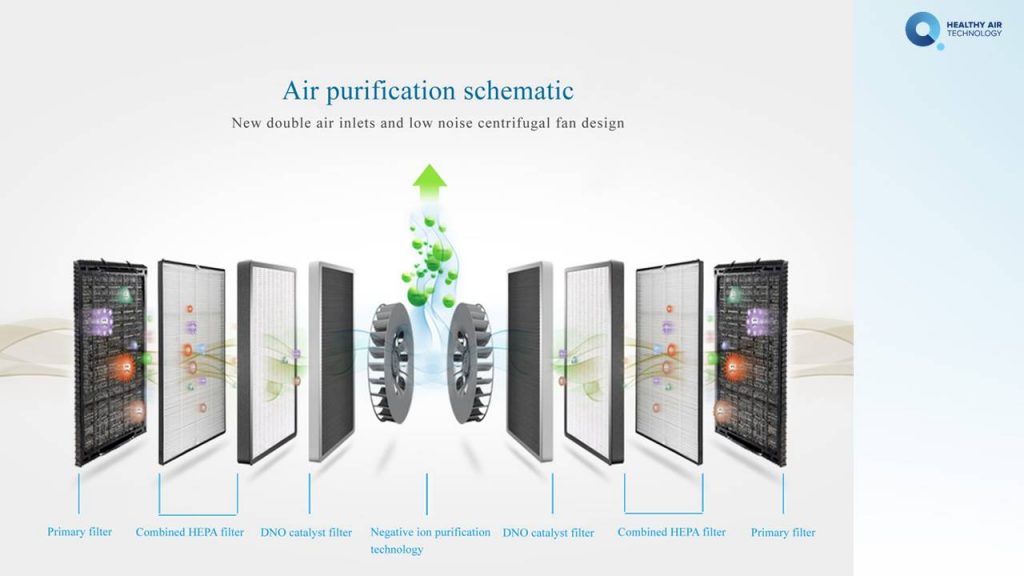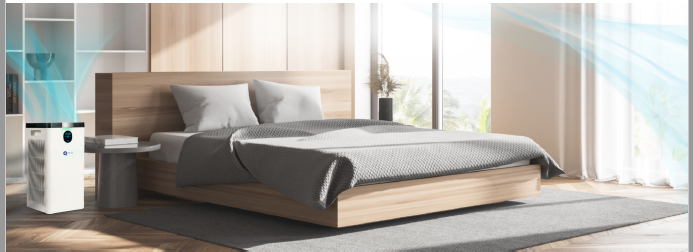Globally, 1 in 6 couples face the heart-wrenching challenge of infertility, with environmental factors playing a significant role. In Nigeria, a hidden culprit lurks around us: poor indoor air quality. This overlooked threat sabotages both men and women’s reproductive health, causing hormone disruption, reduced sperm quality, unsuccessful IVF procedures, and increased miscarriage risk. In this blog, we’ll expose the shocking truth about indoor air pollution and infertility, and introduce a groundbreaking sustainable solution to empower your Trying-To-Conceive (TTC) journey. Discover how clean air can bring joy and life to your family.
How Indoor Air Pollutants Cause Infertility
Unbeknownst to many, the very air we breathe at home can crush our dreams of parenthood. Indoor air pollution, pervasive in 9 out of 10 Nigerian homes, silently sabotages fertility, wreaking havoc on reproductive health. Toxic pollutants like Particulate Matter, Volatile Organic Compounds, and Nitrogen Dioxides infiltrate the body, through inhalation and enters the bloodstream disrupting hormone balance, damaging sperm DNA, and ravaging egg quality. This toxic trio triggers oxidative stress, inflammation, and cell damage, making conception a daunting challenge.

The table below explains how each of these pollutants In our assumed safe haven complicates fertility problems.
| POLLUTANTS | SOURCE(S) | EFFECTS ON WOMEN | EFFECTS ON MEN |
| Particulate Matter | – Cigarette smoke – Cooking fumes – Building materials (e.g., asbestos, fiberglass) – Air fresheners and scented candles – Cleaning products and pesticides | – Disrupts hormones 1 – Endometrial damage and implantation issues – Increased Oxidative Stress and Inflammation – Reduced ovarian function and egg quality | – Reduces sperm production and quality – Hormonal Imbalance – Oxidative Stress and Inflammation |
| Volatile Organic Compounds (VOCs) | – Paints and coatings – Adhesives and sealants – Cleaning products – Pesticides | Linked to cancer, miscarriages, fetal malformations and menstrual disturbances 2 | Reduces sperm production and alter speed genetics |
| Nitrogen Dioxides (NO2) | – Gas stoves and cooktops – Fuel-burning appliances (e.g., generators) – Cigarette smoke – Air pollution from outdoor sources – Cleaning products and pesticides – Paints and coatings | -Disrupts hormone levels and lowers IVF success rates 3 -Reduce egg quality | Lowers sperm counts, decrease semen qualityKills libido and Cause sperm DNA damage 4 |
| Formaldehyde | – Cleaning products and pesticides – Paints and coatings | Increases risk of spontaneous abortion/miscarriage and more fertility problems | Alters sperm genetics contributing to infertility |
| Mold and Mildew | – Moisture (high level of humidity) – Poor Ventilation | Can cause inflammation leading to Fallopian Tube blockage or damage | Affects blood flow leading to erectile dysfunction |
| Endocrine Disrupting Chemicals (EDCs) | – Plastics (BPA, phthalates) – Personal care products (parabens, triclosan) – Pesticides (DDT, organophosphates) – Industrial chemicals (PCBs, PFCs) – Food packaging and contaminants | – Disrupted menstrual cycles and ovulation – Reduced egg quality and quantity – Altered estrogen and progesterone levels | – Reduced sperm count and motility – Altered sperm morphology and DNA integrity – Decreased testosterone levels |
Long-term effects of indoor air pollution on fertility:
1.Permanent Reproductive Damage
- Irreversible harm to ovaries and testes
- Reduced fertility and increased infertility risk
- Hormonal imbalance and menstrual irregularities
2. Financial Burden:
- Cost of medical appointments and treatments: Repeated fertility treatments, health complications, and related health issues incur significant medical expenses.
- Cost of IVF (In Vitro Fertilization): A single IVF cycle can cost up to ₦1.5 million to ₦3 million in Nigeria.
- Cost of surrogacy: Surrogacy arrangements can cost between ₦5 million to ₦10 million or even more.
3. Emotional Toll:
- Depression: The stress and disappointment of infertility, pregnancy loss, and failed treatments can lead to depression and even make the sufferer suicidal
- Anxiety: Uncertainty and fear about the future can cause anxiety, affecting relationships and overall well-being.
- Relationship strain: Infertility can put pressure on relationships, leading to conflicts, emotional distress, separation or divorce.
Additional Long-Term Effects:
- Reduced quality of life: Chronic health issues and emotional distress can impact daily life, work, and social relationships.
- Increased stress: The cumulative effect of infertility, financial burden, and emotional strain can lead to chronic stress that may cause irreparable damage and even death.
- Decreased self-esteem: Repeated failures and disappointments can erode self-confidence and self-worth.

Breakthrough Solution: Healthy Air D-Orbital Nano Oxide Catalyst
After 10+ years of research at Oxford University, Healthy Air’s groundbreaking technology transforms indoor air quality:
Three Key Benefits and How it Works:
Healthy Air medical grade purifiers use patented D-Orbital Nano Oxide Catalyst an advanced air cleaning technology to:
- Unparalleled Filtration: Captures 99.99% of pollutants, including PM2.5, VOCs, NO2, and more.
- Toxin Destruction: Kills harmful substances and converts them into harmless, healthy air, eliminating every possible risk. No side effects and no throwbacks.
- Medical-Grade Purification: Provides pristine air quality, ideal for sensitive individuals and families.

Scientifically Proven:
- Validated through rigorous testing and peer-reviewed studies
- Recognized by leading health organizations/ institutions and health conscious individuals 5.
Hope for TTC Families
Healthy Air’s DNO catalyst technology will help:
- Improve fertility chances
- Enhance reproductive health
- Facilitate conception
Conclusion
Don’t let poor indoor air quality compromise your fertility. Invest in your reproductive health today! Click the link https://healthyairnigeria.com/shop/ to order your Healthy Air’s DNO air purifier today and breathe easy, knowing you’re protecting your reproductive health.
To learn more about our products and benefits visit our Website at www.healthyairnigeria.com
Join the Conversation:
Share your experiences with indoor air quality and fertility. Let’s raise awareness and support TTC families.
References:
- https://www.sciencedirect.com/science/article/abs/pii/S004565352032631X
- https://www.ncbi.nlm.nih.gov/pmc/articles/PMC6998054/.
- https://www.sciencedaily.com/releases/2010/04/100412111631.htm
- https://penuma.com/blog/pollution-affect-infertility/#:~:text=Reproductive%20and%20Genital%20Effects,-This%20is%20the&text=Not%20only%20is%20pollution%20shrinking,59%25%20from%201973%20to%202011
- https://healthyairnigeria.com/testimonials-2/


